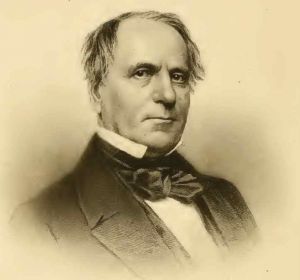Lemuel Shattuck
Lemuel Shattuck (1793-1859) - Fifteenth Master of Corinthian Lodge[edit]
Overview[edit]
Brother Lemuel Shattuck, born on October 15, 1793, in Ashby, Massachusetts, was a prominent statistician, historian, and genealogist. Serving as the fifteenth Master of Corinthian Lodge from 1827 to 1829, Shattuck made significant contributions to historical research, education, and public health reforms in Massachusetts. Known for his meticulous work in genealogy and statistics, Shattuck’s legacy continues to influence these fields today.
Early Masonic and Public Service[edit]
Shattuck was admitted to Corinthian Lodge on November 18, 1824, advancing to Senior Deacon in 1824 and 1825, Junior Warden in 1826, and Master from 1827 to 1829. During this time, he also served as the District Deputy Grand Master of District No. 5 (including Concord) from 1829 to 1832. Shattuck was an active member of the Concord Royal Arch Chapter, where he held the office of third officer.
Professional Life and Contributions to Public Health and Education[edit]
Shattuck’s career began with a deep commitment to educational reform. After moving to Concord in 1822, he restructured the local public school system, introducing standardized registers and annual school reports, which were adopted statewide in 1838. Shattuck’s efforts laid the groundwork for the Massachusetts Board of Education, substantially improving the public education system.
In his later work, Shattuck emphasized public health. As Chairman of a legislative committee, he introduced a statewide system for recording births, marriages, and deaths, crucial for public health data collection and genealogical research. His landmark report, “Report of a General Plan for the Promotion of Public and Personal Health” (1850), became foundational for public health infrastructure in Massachusetts and the broader United States.
Published Works[edit]
Shattuck authored several influential books and reports, including:
- “History of the Town of Concord, Mass., from its earliest settlement to 1832” (1835): This pioneering town history became a model for local histories.
- “A Complete System of Family Registration” (1841): Shattuck’s efforts in family registration were central to Massachusetts' vital records legislation.
- “Vital Statistics of Boston” (1845): An analysis of Boston’s health and demographic data.
- “Memorials of the Descendants of William Shattuck” (1855): A comprehensive genealogy of the Shattuck family, praised for its thoroughness.
Shattuck also contributed to the national census of 1850, designing enumeration schedules that influenced future censuses. His exhaustive genealogical work remains highly regarded among historians and genealogists.
Legacy and Death[edit]
Lemuel Shattuck died on January 17, 1859, in Boston. His contributions to Masonry, public health, genealogy, and education have had a lasting impact, and he is remembered for his dedication to the advancement of society through knowledge. In recognition of his achievements, the New England Historic-Genealogical Society, of which he was a founding member, honored Shattuck’s legacy with a commemorative resolution, and Corinthian Lodge offered sympathies to his family.
